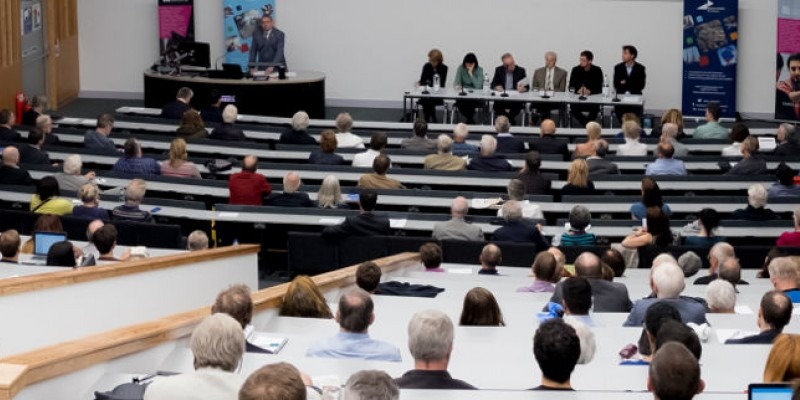
It hardly seems 12 months ago since I attended a West of England Initiative and Bristol Festival of Ideas event which heatedly discussed the issue of staying in the EU or leaving it. The vast majority of that audience were pro remaining and it seemed highly likely that common sense would prevail and we would be staying in the EU; the alternative was just too alien a concept. Or so I thought!
We all know the result of the referendum, and one year on from that fateful day I joined a follow up event ‘Brexit: one year on’ – jointly hosted by the West of England Initiative Evening last night, which focused on what Brexit means - for business, for the region and for the UK.
I as among 200 other guests at the University of Bristol who listened to a distinguished panel of experts explore some of the critical issues surrounding negotiations and what the coming months and years might hold.
The panel, which featured Professor Alan Winters (UK Trade Policy Observatory); Heather Stewart (the Guardian); Vicky Pryce (Centre for Economics and Business Research); Simon Tilford (Centre for European Reform) and Philip Oltermann (the Guardian), took questions from chair Andrew Kelly and audience members to explore:
- The unfolding political dynamics within the UK and EU and how they might influence Brexit negotiations.
- The UK and EU negotiating positions and the trade-offs involved.
- Possible scenarios and their likely implications for business, the economy and citizens.
I was blown away by the quality of the discussion, and in awe of their expertise on the subject, noting with not a little jealousy, that few if any of the panel needed to refer to any notes.
I found the whole panel engaging and insightful.
We were also shown a short film highlighting the perspectives of four local businesses on the issues that Brexit presents for them. It was interesting to see that all four were concerned about tariffs, customs paperwork, quality standards and how it would impact the employment of EU citizens.
Jenny Goss from O’Leary Goss Architects reflected many businesses' sentiments when she said "one year on we still don't know what's happening'. She is particularly concerned about staff – not just recruiting staff (25% of her staff are EU nationals) – but also being able to identify quality architects if we no longer are part of the EU’s globally accepted standards. She said leaving the EU will have an effect on materials, costs and the length of a contract and ultimately it will impact on the choices clients will have.
Andrew Varga from Seetru is equally concerned about staff, in particular the skills shortage leaving the EU could bring about. With a skilled machinist taking 6 years to be fully trained, Seetru currently recruit from Eastern Europe. He is concerned that if work permits were required they would hamper employment and he won't be able to bring in the calibre of people the company requires. He said "EU standards are sensible and provide globally accepted standards." I heard many a chuckle in the audience when he went on to say that "the only red tape is the British habit of gold plating EU regulations."
Simon Booth from Kiddimoto, a growth business exporting to 40 countries was concerned about the increase in bureaucracy, import and export duties and the level of paperwork. His biggest concern was about trademarks which at the moment are protected under EU legislation. If this moves to UK protection then he will incur substantial extra costs. He went on to say that he is taking action to counteract the challenges posed by Brexit; looking for opportunities within the UK and further afield beyond Europe. Talking to guests afterwards I was struck by just how many identified with his plea for "common sense from negotiators". It clearly resonated with the audience.
James Naylor from Eurocarb, reiterated Goss's frustration that 'one year on nothing has happened'. He needs to employ European citizens as languages are an essential requirement in his sales team. He said if it was a hard Brexit then he would need to create a company within the EU which would mean investing more in that company than in the UK business. A powerful statement that brought a few sharp intakes of breath from people around me.
In their remarks to open and close the event, both Professor Steve West (President of Bristol Chamber & Initiative at Business West) and Professor Judith Squires (University of Bristol) emphasised that Bristol is an open, diverse and trading city which is working across business, government and civil society to interrogate and promote solutions that work for the area post-Brexit.
As an employee of Business West, I know that we will continue to play an active role here and we’ll be working hard to ensure the views of business are heard in government.
Listen back to the event on SoundCloud
- Log in to post comments
